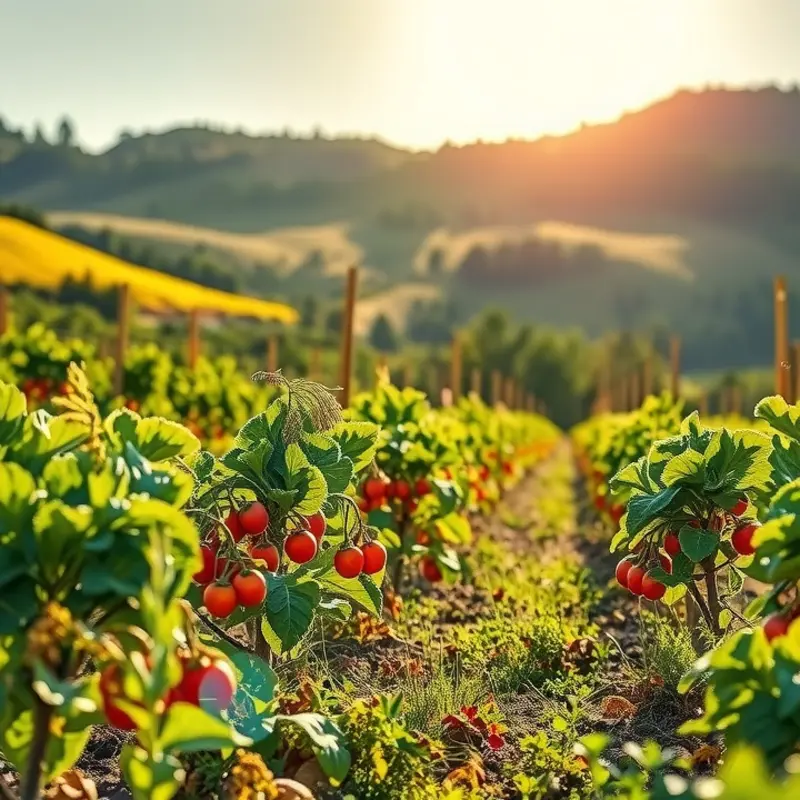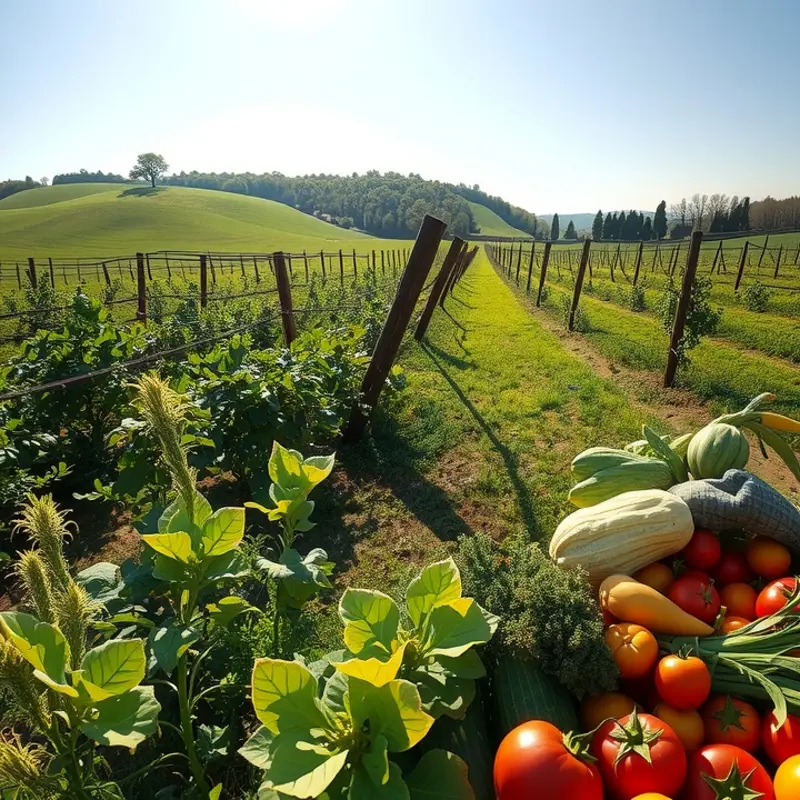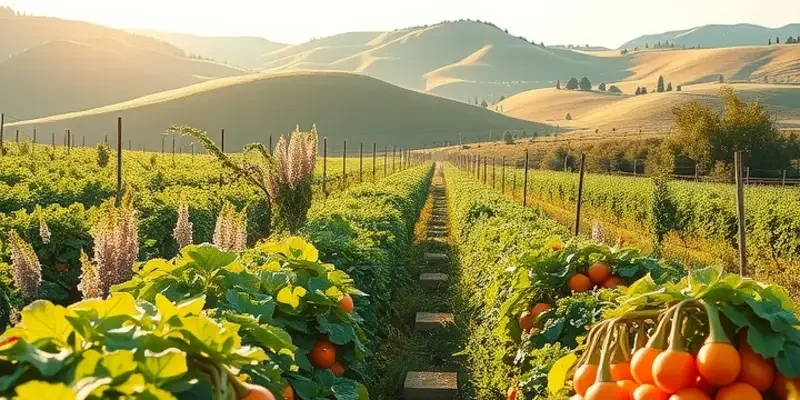Choosing eco-conscious frozen vegetables is more than just a health decision; it’s an impactful choice that benefits our planet. By opting for these frozen delights, you’re supporting sustainable farming practices that not only preserve biodiversity but also minimize food waste. This thoughtful approach enables you to enjoy convenient, nutritious meals while making a positive contribution to the environment. Discover how you can embody eco-friendliness in your kitchen with frozen vegetables that align with your values.
Understanding the Eco-Friendly Aspects of Frozen Vegetables

Frozen vegetables are a powerhouse of eco-friendliness. Their journey from harvest to freezer involves a series of sustainable practices that benefit both the consumer and the environment. One of the most significant advantages of choosing frozen vegetables is their contribution to reducing food waste. Fresh produce often perishes before consumption, leading to substantial waste. In contrast, frozen vegetables maintain their quality for extended periods, reducing the number of spoiled goods and minimizing waste.
Furthermore, freezing vegetables shortly after harvest captures peak ripeness and nutrients. This process eliminates the need for chemical preservatives, as the low temperatures naturally preserve the vegetables’ freshness. As a result, consumers enjoy produce that is not only nutritious but also free from excessive additives, aligning with a cleaner, more natural diet.
The environmental impact of frozen vegetables extends beyond waste reduction. The packaging of these products is usually more compact than that of fresh produce, leading to more efficient transportation. This reduced logistical footprint translates to lower carbon emissions and energy consumption. Additionally, many brands are moving towards biodegradable or recyclable packaging, enhancing the sustainability factor further.
By embracing frozen vegetables, you also support agricultural practices geared toward long-term sustainability. Many farmers involved in the production of frozen vegetables implement techniques such as crop rotation and reduced pesticide use, promoting farmland health and local biodiversity.
From a nutritional perspective, frozen vegetables often rival their fresh counterparts. The freezing process helps lock in Vitamins A and C, fiber, and other essential nutrients that could otherwise degrade over time in fresh produce. This nutritional integrity offers a convenient option for those seeking to maintain a balanced diet.
Integrating frozen vegetables into your meals is not only a choice for better health but also a proactive measure towards environmental care. By prioritizing these products, you contribute to a circular economy that values resource efficiency and environmental stewardship. For tips on reducing overall kitchen waste, consider exploring strategies for eco-smart kitchen storage, which integrate well with the use of frozen vegetables.
The frozen vegetable industry is continuously innovating to improve sustainability metrics, offering consumers an increasingly eco-friendly option for their culinary needs. By choosing frozen vegetables, you’re making a conscientious decision that positively impacts both personal and planetary health.
Making Smart Choices: How to Select Eco-Friendly Frozen Vegetables

Choosing eco-conscious frozen vegetables can significantly contribute to sustainable eating and environmental health. Making informed decisions starts with understanding various certifications and labels. USDA Organic is a crucial certification, indicating that the vegetables are grown without synthetic fertilizers, pesticides, or genetically modified organisms (GMOs). This label is vital if you’re aiming to support environmentally friendly farming practices.
Another important sign is the Non-GMO Project Verified label. Products with this label have completed a rigorous testing process to ensure they do not contain genetically modified organisms. Opting for these frozen vegetables supports biodiversity and the natural genetic makeup of our crops.
Beyond these labels, look for certifications that guarantee responsible sourcing practices. For example, some certifications ensure that the vegetables are sustainably farmed, minimizing the impact on ecosystems and communities. These often include fair labor practices and reduced resource usage during production, which is essential for genuinely eco-friendly consumption.
While it’s easy to assume that seasonal produce only applies to fresh vegetables, it’s also relevant for frozen options. Choosing vegetables harvested in their natural growing seasons often means they require fewer resources to produce and transport, making them a more sustainable choice. This approach can be an excellent way to select frozen vegetables that support both local farmers and the environment.
Local sourcing of frozen vegetables further enhances their sustainability factor. By choosing vegetables processed closer to home, you reduce the carbon footprint associated with transportation. This not only supports regional agriculture but also ensures you’re consuming simply frozen, fresh produce without excessive storage times, which can deplete nutritional value.
Packaging also plays a critical role in the eco-friendliness of these products. Opt for brands that use minimal and recyclable packaging. Some brands are moving towards compostable or returnable packaging innovations, reducing plastic waste significantly. Recycle the packaging whenever possible, and consider implementing zero-waste habits in your kitchen to further your environmental impact.
Incorporating these thoughtful practices aligns well with maintaining an eco-smart kitchen, where every decision contributes to waste reduction and sustainability. You can learn more about eco-smart kitchen storage and ways to reduce waste by visiting this guide.
By adopting these strategies, you can enjoy nutritious meals while making choices that actively benefit the planet. Consistently making small, eco-conscious decisions adds up to a more sustainable lifestyle, allowing you to contribute positively to the global food system.
Final words
Choosing eco-conscious frozen vegetables does not only make your diet more nutritious, but also reflects a commitment to environmental sustainability. By selecting frozen options that prioritize organic farming, minimal waste, and responsible sourcing, you’re playing an essential role in protecting our planet. Remember, every small step counts, and by nurturing our ecosystems, you contribute to a healthier world for generations to come. Embrace this shift in your buying habits and inspire others in your community to follow suit.








